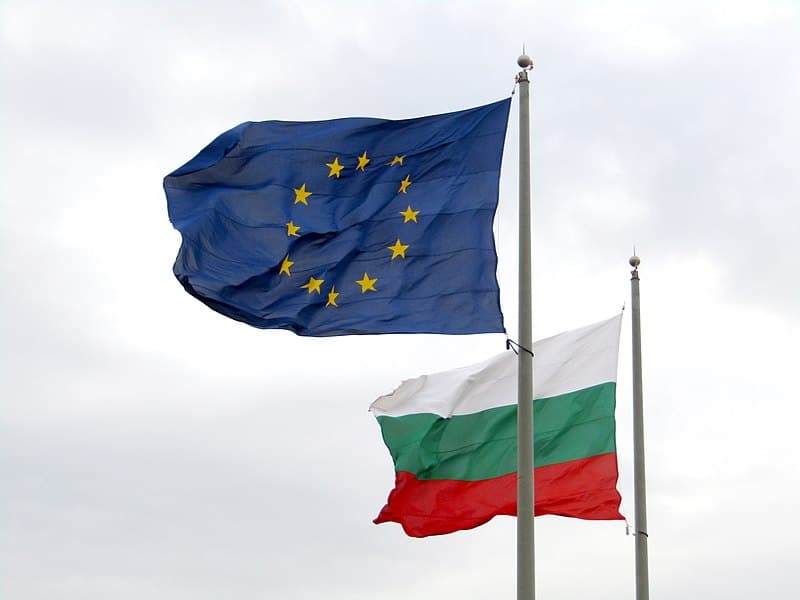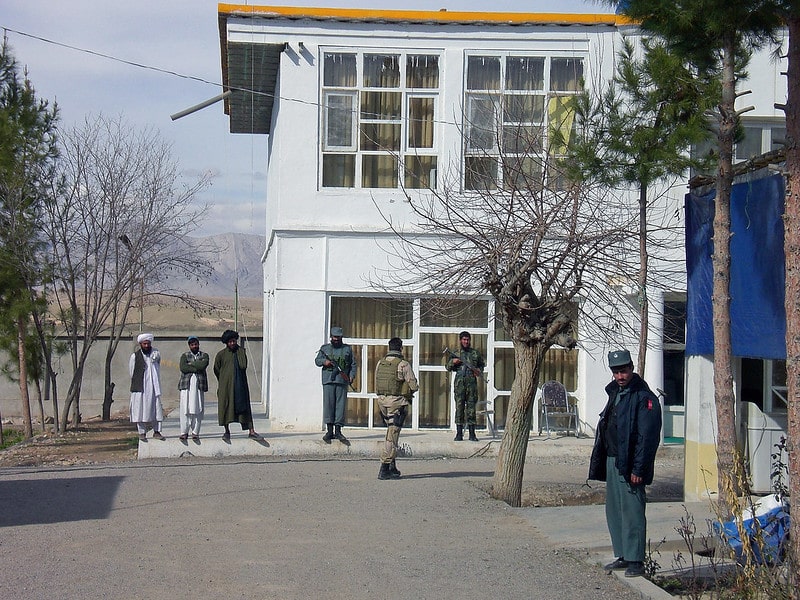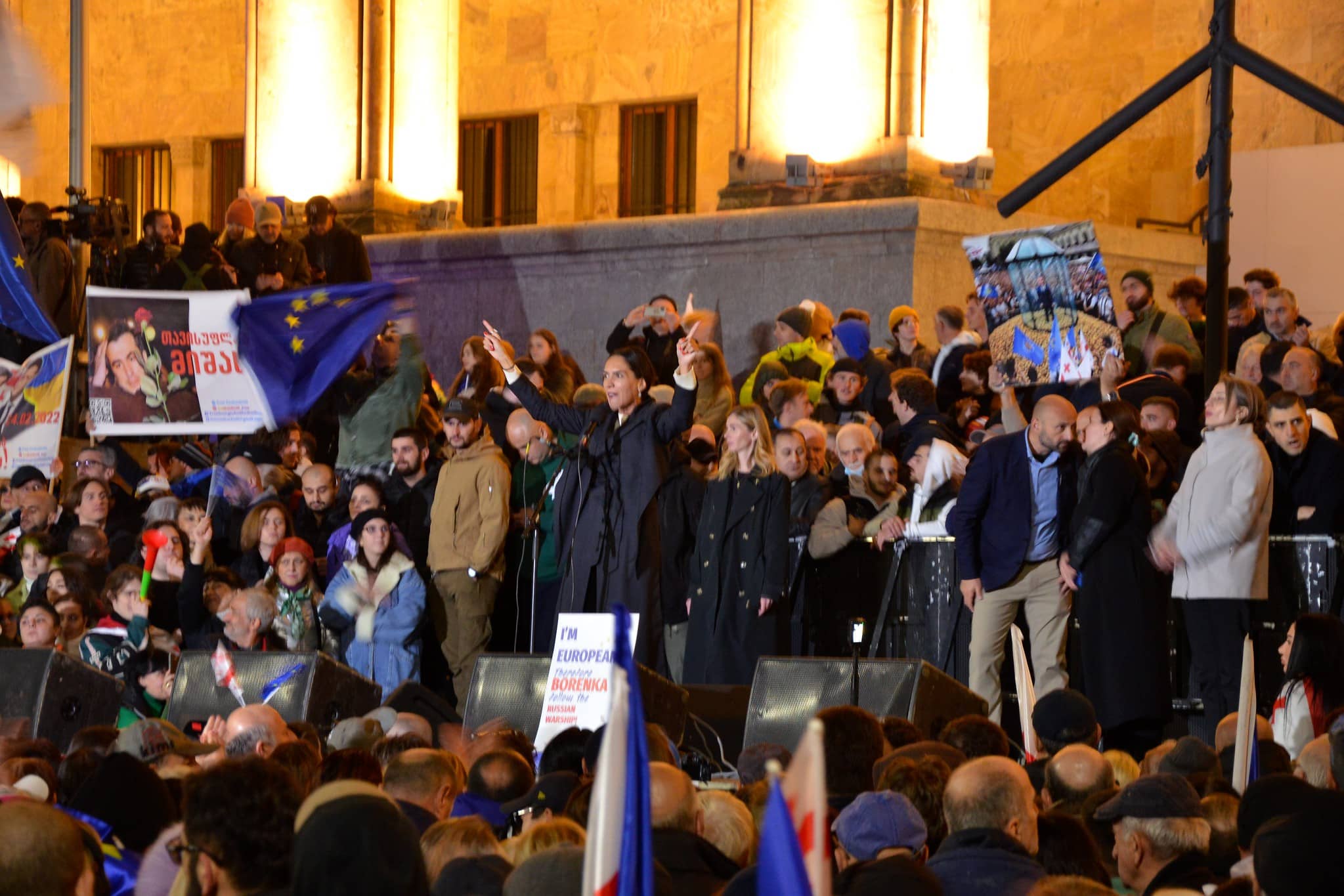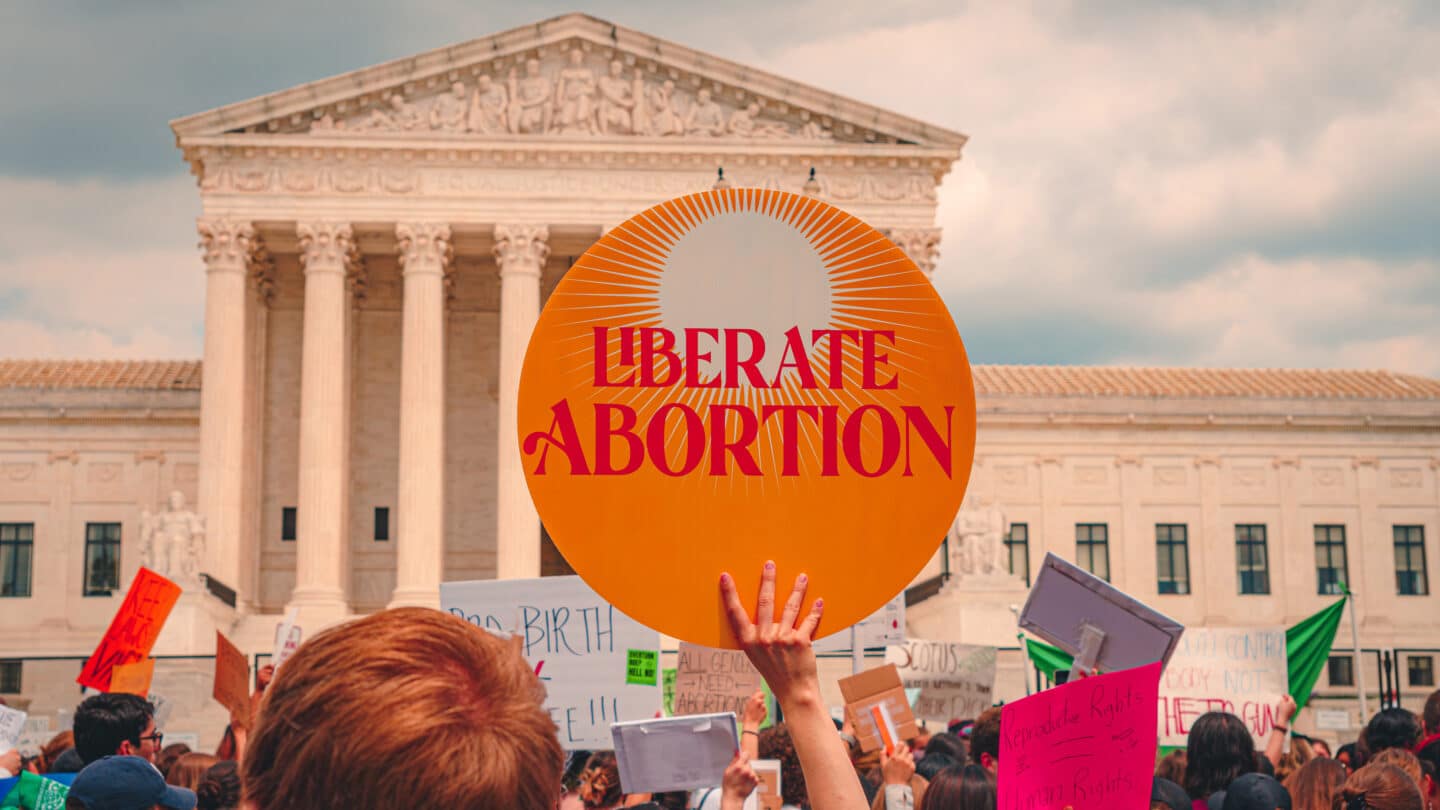Photo: flags of the European Union and Bulgaria - Wikimedia Commons
On 7 August, the Bulgarian parliament overwhelmingly approved a bill that would "LGBTQ+ propaganda" should ban in schools. This law would ban any education that goes against so-called traditional sexual orientation. Submitted by the pro-Russian political party Vazrazhdane ('revival'), this bill is in line with similar proposals adopted in the past in countries such as Russia and Hungary. This has led, for example, to LGBTQ+ persons in Hungary only being shown on TV very late, so that children cannot be exposed to them. Even more recently, in June this year, the Georgia here also passed a similar bill banning everything around Pride in the country. So Bulgaria is the latest country to be added to this list of countries.
In themselves, of course, these are already very worrying developments, but in Bulgaria this is also happening against a background of deep political divisions. For instance, the 7e elections since 2021 organised, in that no government was formed at all after each election, or the government fell apart again within a few months. This has also had clear consequences for people's trust in politics. In the last election on 9 June, for example, turnout was only just over one-third of the total number of eligible voters, while three years earlier this was higher than half of all voters. On top of this, Bulgaria has also long been plagued by corruption scandals. In 2020, for example, this led to huge protests against the then government led by Prime Minister Boyko Borisov, who was suspected, among other things, of connections with key oligarchs.
It therefore remains to be seen what effect the new law banning LGBTQ+ expressions will have on the already fragile confidence of the Bulgarian population.
Kremlin looks on smiling
It is not for nothing that a pro-Russian party proposed this law to restrict the freedoms of LGBTQ+ persons. Not only is this in line with the thinking of the Kremlin, which had already implemented frequent restrictions on the rights of LGBTQ+ persons in 2013, but in addition it continues the division in the Bulgarian political spectrum. This favours Russia, which has an ally in the Bulgarian parliament with the convincingly pro-Russian president Rumen Radev, who has tried time and again to thwart support for Ukraine, for instance. As long as the political parties are unable to form a government, Radev is in a position to always have a to appoint caretaker government allowing him to make a big mark on his country's policies.
Although a majority in the Bulgarian parliament is basically pro-Europe, this law is causing a split between the conservative and more progressive branches of this group. For instance, the progressive coalition PP-DB has vehemently opposed this law, while the centre-right GERB overwhelmingly agreed to the law in order to support so-called 'Left-wing ideologies' counter. As recently as 2023, these parties had joined a government with A pro-European and anti-corruption agenda united, but it unfortunately fell apart after only a few months. This law, dividing the pro-European camp, will only make it more difficult to achieve similar cooperation again after the next election.
On top of this, a party like GERB is shooting itself in the foot with this. Research by the Robert Schuman Foundation shows that people in Bulgaria already have a lot of less critical is on Russia compared to other countries in the region. This is partly because of the relatively distant distance between Bulgaria and Russia, but also, in addition, because of the mistrust people have towards the EU and the negative attention the EU receives in the media. It is therefore important for pro-European parties to speak out against this. Adopting a bill inspired by a Russian law and also proposed by a pro-Russian party only leads to more distrust of the EU and less criticism of Russia.
Europe seems further and further away
Not surprisingly, citizens' trust towards their politicians is not in good shape in Bulgaria. Politicians from different parties do not try hard enough to compromise and achieve good and trustworthy governance of Bulgaria. On top of this, it seems that politicians are more concerned with themselves and their political opponents than with their people and the country's interests. This can lead to very serious consequences, not only for LGBTQ+ persons, but also for the rest of the country.
Amnesty International has research done on the impact of the ban on LGBTQ+ expression introduced by Hungary in 2021. They conclude that this has led to both censorship and self-censorship in the public sphere. This in turn has led to increased prejudice and discrimination against LGBTQ+ persons. Of course, it remains to be seen whether the exact same thing would happen in Bulgaria, but it would not be a surprise if the level of stigma and discrimination will increase. On top of this, the pro-Russian party that tabled the bill argues that LGBTQ+ propaganda from the west comes and is also trying to distance itself more from Europe with this law. Thus, by agreeing to this proposal, GERB is undermining its pro-European views.
So why does GERB agree to this bill anyway? The most plausible answer seems to lie in the fact that Bulgaria keeps going from election to election without having a stable government. This bill also comes just before the new elections, with which GERB is probably trying to appeal to conservative voters. Thus, this law is meant to be a political victory for GERB, but is thus certainly not a political victory for Bulgaria. On top of this, this law goes against EU treaties and the European Commission is currently investigating whether it is within EU legislation falls. So this only increases the distance to the EU.
Last elections for now?
On June 3, the progressive PP-DB released their political partners called on to come together again under a shared pro-European agenda. Hopefully, parties like GERB will heed this call and try again to improve ties with Europe. However, it does not help when legislative proposals, such as the ban on LGBTQ+ propaganda, stand in the way of this cooperation. Following personal interests and an unwillingness to compromise only benefits Russia in the end. Thus, if GERB is truly in favour of a pro-European course, they have nothing to gain from restricting LGBTQ+ rights. This is a populist and opportunistic decision that seeks to exploit existing prejudices for political gain. This only hinders integration in Europe and reinforces these prejudices.
It is to be hoped that the upcoming elections in Bulgaria will be the last for a while and a stable government can finally be formed by the pro-European parties in parliament. If politicians can get over their self-interest, hopefully there will also be more confidence in their functioning and thus democracy. This is what Bulgarian voters finally deserve after voting 7 times.





